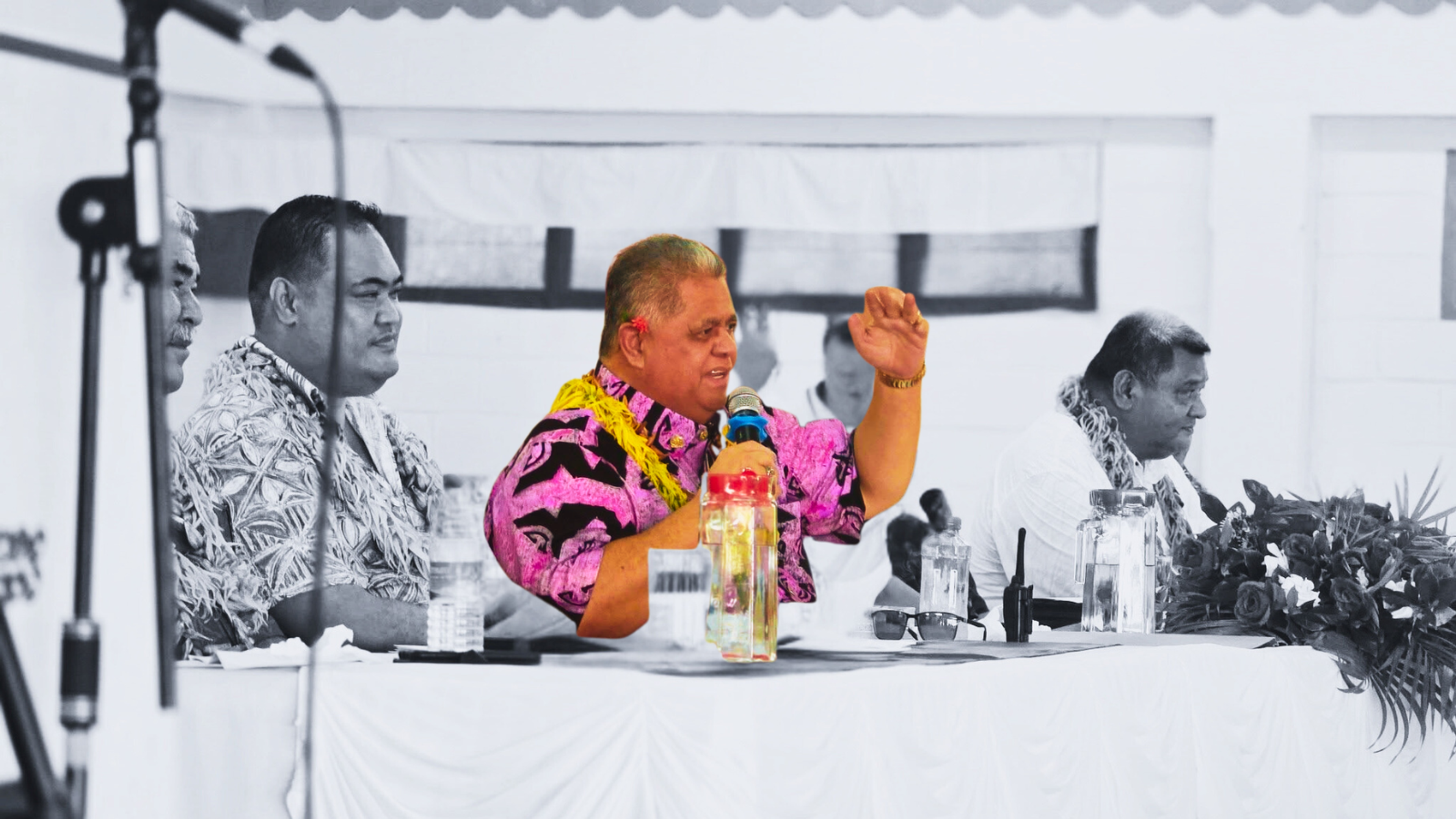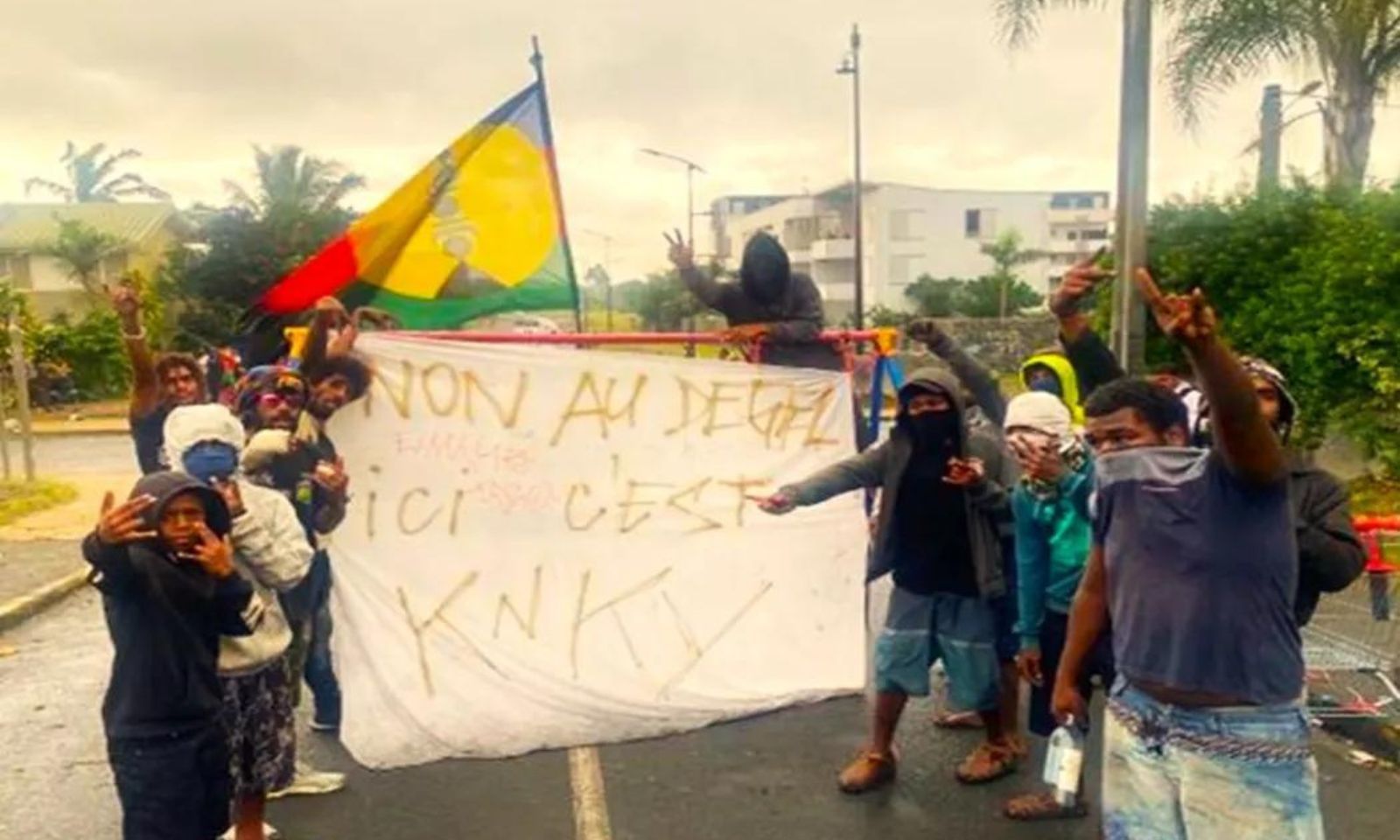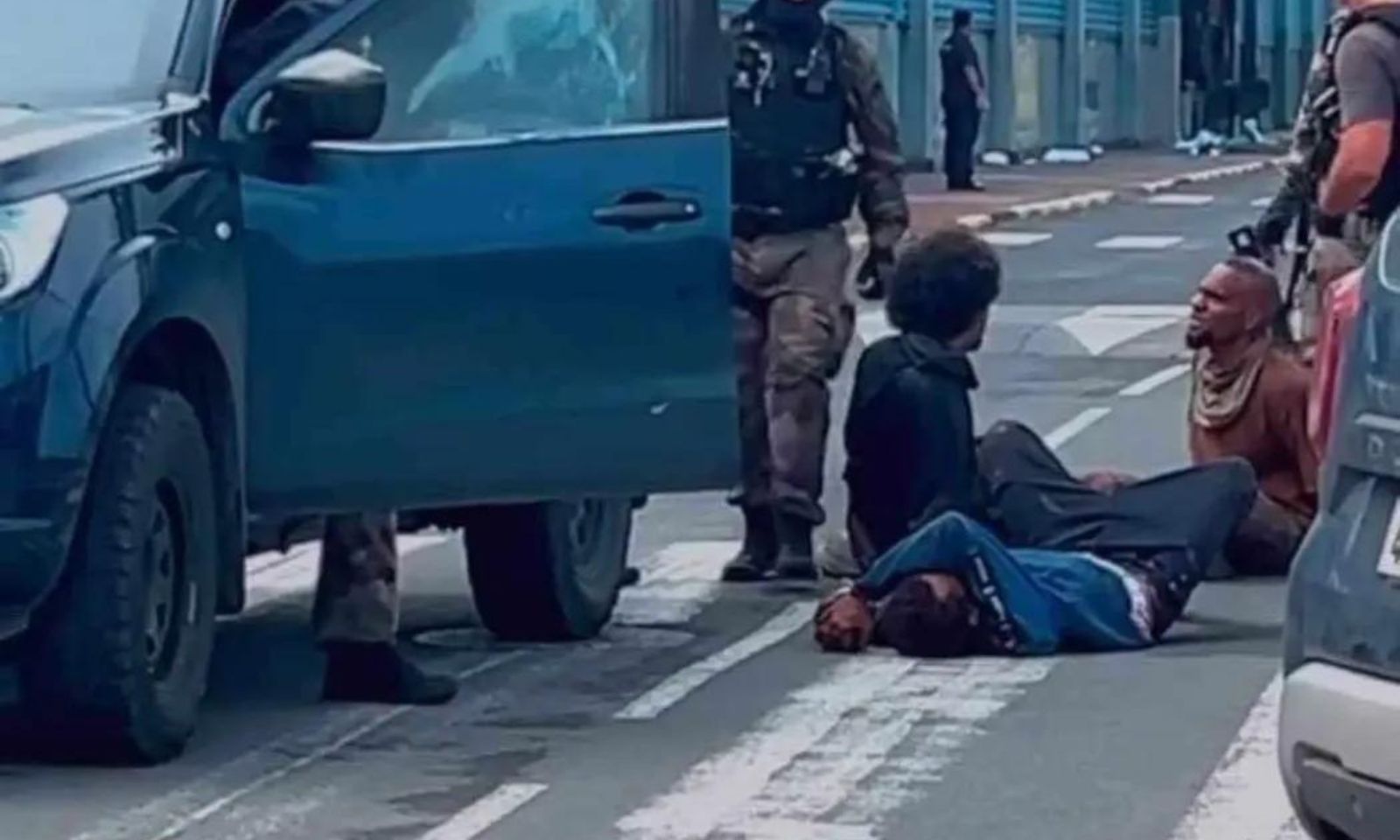

France President Emmanuel Macron is under intense scrutiny over his government's handling of the political upheaval in New Caledonia.
Photo/supplied
New Caledonia crisis: Why France refuses to leave Pacific territory
Pro-independence supporters want colonialism to end in the island nation, but the French government is hanging on, correspondent Nic Maclellan says.




New Zealand-United States minerals talks spark concerns over Pacific seabed mining




New Zealand-United States minerals talks spark concerns over Pacific seabed mining
President Emmanuel Macron flew halfway across the world last week but failed to achieve a breakthrough in a conflict that's damaging French diplomacy in the Pacific, journalist Nic Maclellan says.
Macron's 16,700km trip to Noumēa came in response to 10 days of riots and clashes between protesters and police that left at least seven people dead, and a state of emergency imposed on 15 May.
Maclellan, who has been covering this story for decades, told Pacific Mornings' William Terite there are reasons why France wants to hang on to its dependencies, its colonies, in the Pacific - New Caledonia, French Polynesia, and Wallis and Futuna.
Watch Nic Maclellan's interview below.
Maclellan said New Caledonia is moving towards the 21st century where colonialism has ended in the Pacific, but the French are hanging on.
"For one reason, under the law of the sea, countries get to control what's called the exclusive economic zone. These are 200 miles around a piece of landfall where you can manage the ocean resources.
"In the Pacific, France claims sovereignty over seven million square kilometres of the exclusive economic zone - 1.3 million square kilometers of New Caledonia. Nearly five million for French Polynesia around fisheries, around potential exploitation of seabed minerals, deep sea oil and gas.
"France is a colonial power with colonies in every ocean of the world and they're very concerned about ocean politics as obviously are Pacific Island countries who talk a lot about the Blue Pacific."
Maclellan is a correspondent for Islands Business magazine in Fiji and a contributor to Pacnews, Inside Story, and other regional media.
He has published widely on French policy in the Pacific islands and is co-author of La France dans le Pacifique – de Bougainville à Moruroa (Editions La Découverte, Paris) and After Moruroa – France in the South Pacific (Ocean Press, New York and Melbourne).
New Caledonia is located about 2400km north of New Zealand and has a population of close to 270,000 people, with 41 per cent of them the indigenous Kanaks.
The Pacific island nation was annexed by France in September 1853 and became a territory of the European superpower in 1946.

Pro-independence supporters on the streets of Noumēa. Photo/Nouvelle Caledonie La1ere
The Noumēa Accord, signed by the French government in 1998, promised to increase political power to New Caledonia and the Kanaks over a 20-year transition period.
But pro-independence leaders warned France has continued to control the territory's military and foreign policy, immigration, police, and currency.
Maclellan said while there were global geopolitical drivers to this crisis including China, that overlayed the longstanding Kanak struggle for sovereignty - poverty and equality were the other factors.
"During the armed conflicts of the 1980s, the rural areas were the height of the fighting but the last couple of weeks, the unrest has been centred in the capital, Noumēa. And it reflects, I think, particularly concern about the enormous inequality in this society and in that city.
"Despite strong traditions of reconciliation, of cultural exchange between Indigenous Kanak and people from other places, a lot of young people are angry. They see the wealth of the southern suburbs, the yacht harbours, the luxury apartments - that they are discriminated against in many ways around jobs, housing, welfare, and all the things of urban life.
"There are thousands of people living in squatter settlements in Noumēa despite it being one of the wealthiest Pacific Island countries because of French money flowing in. But the benefits of those resources are not shared equally and you've seen that, particularly the young people.
"They were out on the streets despite a curfew, despite thousands of police being deployed, young people had had enough. And I think that's an underlying driver beyond the broader questions of indigenous Kanaks and many other supporters of independence wanting to move towards an independent and sovereign nation."
New Caledonia is one of the largest economies in the Pacific, with its soils containing about 25 per cent of the world’s nickel resources.
"China is the largest purchaser of nickel ore, and New Caledonia has incredible mineral resources, estimated more than 20 per cent of the world's reserves of nickel, which is a vital strategic metal that can be used for everything from pots and pans to armaments and particularly nowadays for electric vehicle batteries.
"There's a huge global market. The nickel industry is in turmoil at the moment for a variety of reasons. So that's certainly a factor."
Macron and his Interior/Overseas Minister Gerald Darmanin visited Noumēa last Wednesday and spent 18 hours holding talks with New Caledonia's elected officials and business partners at the French High Commission.
Both Macron and Darmanin called for a republican order, the French Republican Order.
"That's very tone-deaf language," Maclellan said, "simply because this is the heart of the crisis. Many indigenous Kanak supporters from other communities in New Caledonia don't wanna be part of the French Republic.
"So the language about bringing back the republican order doesn't ring true for the young people who've been out breaching the curfew over weeks of fighting."
Maclellan said New Zealand and Australia have been "muted" over the conflict.
He said Australia has been building a strategic partnership with France on military matters and other issues around climate and people-to-people links.

French Police reinforcements have arrived in New Caledonia to quell the violent unrest in the capital. Photo: Facebook/Info Route NC et Coup De Gueule Route
"Australia has been very close to seeing France as a Pacific partner, an ally, particularly against Chinese influence in the region. It's a real crisis for the Australian government policy, simply because there's enormous anger, particularly in Melanesian countries, about what's going on.
"France has damaged its diplomacy by the last two weeks. I'm old enough to remember the days when they lit up 193 nuclear tests at Mururoa [French Polynesia] when they blew up the Rainbow Warrior in Auckland Harbour.
"They've been working to improve their relations with the region. That's now been very badly damaged by these events."
Maclellan said the real challenge would be France giving time for people on the ground in New Caledonia, both supporters and opponents of independence, to forge a consensus around a way forward.
"France is not giving people the time to do that. And that's really what's triggered this current crisis. The legislation to change voting rights, was through the French Senate, being through the National Assembly.
"And just yesterday, President Macron said he might even put this issue to a vote in France, a referendum in France. So all French people would get to vote, where the more French people could vote in New Caledonia. It's madness.
"The French government has to give time for a dialogue for consensus around a way forward on the ground."
New Caledonia's state of emergency ends on Tuesday 28 May at 5am local time (6am NZ time).